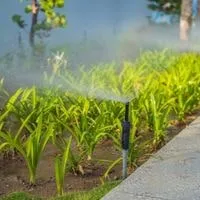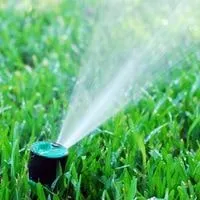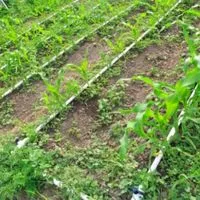How is over irrigation damaging to soil. Irrigation is an artificial process of watering plants and fields, and it should only be done to maintain a balance.

How is over irrigation damaging to soil
Over irrigation or watering is a term that refers to feeding the land or plants beyond the demanded limits. Over irrigation poses several impacts on land like it flows away nutrients and a mineral salt, it may damage topsoil. Over irrigation affects the aeration badly.
Over irrigation happens when water in excess amount is supplied to soil. Over irrigation increases the moisture and causes a problem for plants. Over-irrigation badly affects the crops and plants’ growth, in terms of waterlogging.
How is over irrigation damaging to soil
over-irrigation is dangerous for the soil and plants. It can create some serious problems and damage. Over irrigation affects the nutrients and PH level, moreover, it damages the upper layer of soil.
Over irrigation creates the salt concentration and damages aeration. We are going to discuss some damages and effects of over-irrigation on the soil.
Over irrigation damages nutrients
One of the major impacts of over-irrigation is that flowing water carries the soluble nutrients along with the topsoil.
So, there is a danger of nutrients being washed away or they may get to the lower layer of soil where roots of plants can’t reach. When there is the effect of irrigation in terms of nutrients you may observe this impact within days.
Over irrigation causes the lack of nutrients and it poses a huge impact on plants’ growth, and your plants may lose leave and even it may be a more serious situation. One of the examples or signs could be the yellowing of leaves after excessive rain.
Over irrigation affect PH level
The over-irrigation has two affect ls on PH level, it either makes the soil acidic, or it may increase the PH level which is not good for plants. Plants cannot survive in this situation and will die.
Some plants love acidic soil when over-irrigation occurs it can damage those plants. Similarly, sudden change in PH level is most demanded of the plant’s growth.
Over irrigation damages aeration/air packets
Plants need proper aeration in the soil for their growth, but over-irrigation damages the air packets. After over-irrigation excessive water in soil stops the aeration because oxygen cannot pass.
After over-irrigation soil around the roots gets hard and the supply of oxygen cuts off.
This is a common example many of us may see during the initial days of our gardening that plants in small landlocked stars die.
Over irrigation damages topsoil
Over irrigation after years and years can affect the geographic status of the land. At an earlier stage, it’s hard to observe but with time and after repeated cycles you will observe that over-irrigation erodes the topsoil.
Similar behavior can be seen in your garden, after a season you will observe the water has flown some soil. This could be a serious effect as the soil for plants is not easily available and you have to buy it from gardening stores.
Over irrigation creates the salt concentration
We have talked earlier about nutrients flown by over-irrigation, over-concentration of mineral salt is also a common problem created by over-irrigation.
When the water flows it takes all mineral salts and places them in the area or lower spot. All the minerals move to that spot too. It sounds good but actually, it’s a danger for plants. Did you hear of barren land, that is the cause of concentrated mineral salt?
Conclusion
Water is an important source of energy for the growth of plants and crops. But excess water may affect plants’ growth and damage soil. Always keep a balance when watering your plants and fields.
Don’t supply water in excess amount, it can damage the nutrients level, PH level, and other important factors.
Related Guides

